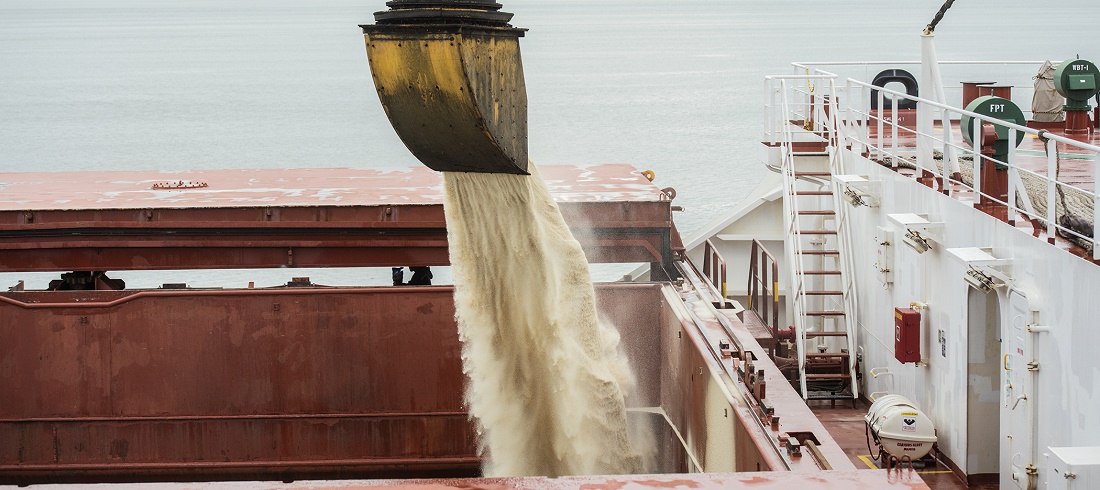
Sugar transportation costs increase due to late soybean harvest
Mar, 24, 2021 Posted by Ruth HollardWeek 202113
The costs in Brazil to export sugar have increased both on the highways and on sea shipments due to the delay in the soybean harvest in this 2020/21 harvest. The picture may tighten the operating margins of sugar sellers who do not work with long-term contracts.
Currently, the average freight cost to take sugar from Ribeirão Preto to the Port of Santos is R$ 150 per ton, 30% more than the R$ 115 a ton a year ago, according to the executive of a company that produces and trades sugar. From Tarumã (SP) to Santos, the increase was 20%, to R$ 181 per ton, says EsalqLog. There are still operators who are reporting increases above 40%.
The increase in cost reflects the competition between soy and sugar for trucks. There was a three-week delay in the soybean harvest. Thus, according to EsalqLog, the cost of shipping soybeans from Cascavel (PR) to Paranaguá is 58% higher this month, at R$ 193.86 per ton.
At the ports, this competition has not yet created difficulties, since many terminals today have the flexibility to operate with both grains and sugar. This month, most of the sugar terminals have allocated a greater part of their space to soy. According to the trading company Czarnikow, the grain occupied more than 60% of the capacity of the Santos terminals. In March 2020, it was about 55%.
In a few weeks, the flow of sugar to the ports will increase with the new harvest (2021/22). In a report, Czarnikow pointed out a “possible logistical tightening from April to August”, but not everyone agrees. Two logistics operators and two trading executives said they did not see any difficulties in selling the product. One trader recalled that sugar buyers on the March contract for the exchange have not yet named all ships and that nominations can be made until May.
For now, what is seen is less flexibility in the terminals for additional volumes of sugar, according to another trader, who said he does not see any problems in fulfilling signed contracts. A plant executive said tradings that work more with spot contracts may have more market difficulties.
At the Port of Paranaguá (PR), there is no competition between grains and sugar because the east terminal is dedicated to grain in bulk, and the west, to sugar. Despite this, the President of Portos do Paraná, Luiz Fernando Garcia stated that there may be problems when the export of off-season corn begins. “As they leave through the same terminal, it is possible that we have some delays”.
Sea freight is also on the rise, both due to the delay in the Brazilian soybean harvest, as well as the rise in marine fuels – reflecting the appreciation of oil – and the greater use of ships for other purposes, such as coal transportation.
According to S&P Global Platts, the freight of a ship carrying 50,000 tons of sugar from Santos to Rizhao (China) rose 94% in 12 months, to US$ 51 a ton in the week until the 18th. Freight for soybeans reached US$ 57.25 per ton from Santos to Qingdao, in China, in the week up to March 22nd, a new record. According to lawyer Larry Carvalho, from Rabb Carvalho, an expert in foreign trade, sea freight should continue to rise in April with the increase in the dispute over bulk carriers that operate with both commodities.
Source: Valor Econômico
-
Shipping
Dec, 04, 2024
0
Maersk Shares Face Headwinds Amid Shifts in Maritime Supply and Demand Dynamics
-
Ports and Terminals
Jun, 10, 2021
0
Post-Covid Retail Boom drives volume in US ports
-
Sep, 22, 2023
0
TOC Africa focus on port development and logistics in Africa
-
Other Cargo
Oct, 20, 2021
0
Faced with an energy crisis, China increases control over its fertilizer exports



